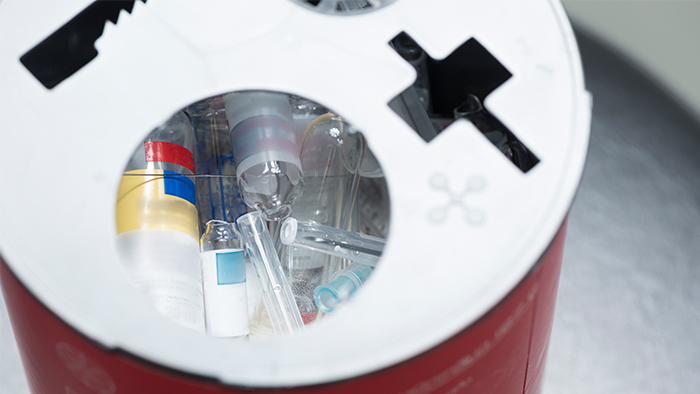Pharm Rule- Key Provisions for Retailers
- 06/05/2019

The rule also excludes FDA-approved OTC nicotine replacement therapies (e.g., patches, gums, lozenges) from the P075 acute hazardous waste listing. This nicotine exclusion is significant because many retail stores may have been classified as large quantity generators ("LQG") and subject to onerous regulations based on the generation of only 1 kg (2.2 pounds) of such nicotine wastes in a single month. In other words, OTC nicotine replacement therapies will no longer be considered hazardous waste by EPA, although, as described below, states are not required to adopt this part of the rule.
While the new management standards for HWP eventually will go into effect in all states (see discussion of timing below), states are not required to adopt the nicotine exclusion or other "less stringent" parts of the rule. The result could be a patchwork of state adoption of the nicotine exclusion and a challenging compliance landscape for retailers.
Key Provisions of Pharmaceutical Rule
- Sewer Ban: Prohibits retailers (and other health care facilities and reverse distributors) from disposing of HWP by pouring them down the drain (i.e., sinks, toilets, floor drains).
- HWP Management Standards in New 40 CFR Subpart P: Replaces existing RCRA hazardous waste rules for all HWP generated by "health care facilities," including retailers, and imposes specific requirements for reverse distributors of HWP. Management standards vary based on whether a HWP is potentially eligible to receive manufacturer credit through the reverse distribution process.
- Nicotine: Excludes from the P075 acute hazardous waste listing all discarded FDA-approved OTC nicotine replacement therapies (e.g., gums, patches, lozenges). Does not exclude prescription nicotine replacement therapies or e-cigarette liquids, although these wastes may be managed under the new Subpart P.
- Additional "RCRA Empty" definitions: Exempts from hazardous waste regulation containers, syringes, and IV bags of acutely hazardous or non-acutely hazardous waste pharmaceuticals meeting specific criteria of "empty."
- Recalls, Litigation Holds, Drug Trials: New exclusion from hazardous waste rules for pharmaceuticals managed under these special circumstances to facilitate removal and consolidation, although hazardous pharmaceuticals ultimately would have to be managed as hazardous waste.
- DEA Controlled Substances: New exclusion from hazardous waste rules if controlled substances are handled per DEA rules and destroyed in a regulated incinerator or by another DEA-approved method.
In addition to the specific rule changes listed above, in the preamble to the final rule, EPA discusses its policy on reverse logistics for all unused/returned consumer products (not only pharmaceuticals) and under what circumstances those products would become subject to regulation as hazardous wastes.
Timing of Implementation
The sewering ban goes into effect in all states automatically on August 21, 2019, regardless of whether the states have taken action. (EPA adopted the sewering ban under its HSWA authority.)
The entire rule (including subpart P and the nicotine exclusion) goes into effect on August 21, 2019 in Iowa, Alaska, Puerto Rico, and any states that automatically adopt EPA rules (e.g., New Jersey, Pennsylvania).
Other states must adopt the "more stringent" provisions before they become effective in those states, including the new HWP management standards in Subpart P. However, it is optional for the states to adopt the "less stringent" provisions, including the nicotine exclusion. States are taking a range of approaches to adoption. Ohio has announced that it will begin a rulemaking process to adopt the new EPA rule, specifically seeking comment on whether Ohio should adopt the "optional provision" excluding FDA-approved OTC nicotine replacement therapies. North Carolina has announced plans to adopt the new rule and to allow companies to take advantage of the nicotine exclusion prior to the state adopting the full rule. Minnesota has announced plans to phase in the various requirements of the new rule, with the nicotine exclusion to be effective immediately. Other states either have initiated or will be initiating rulemaking processes in the near future.
Aaron Goldberg, Partner, Beveridge & Diamond
Elizabeth Richardson, Partner, Beveridge & Diamond
Beveridge & Diamond PC- The Environmental Law Firm


